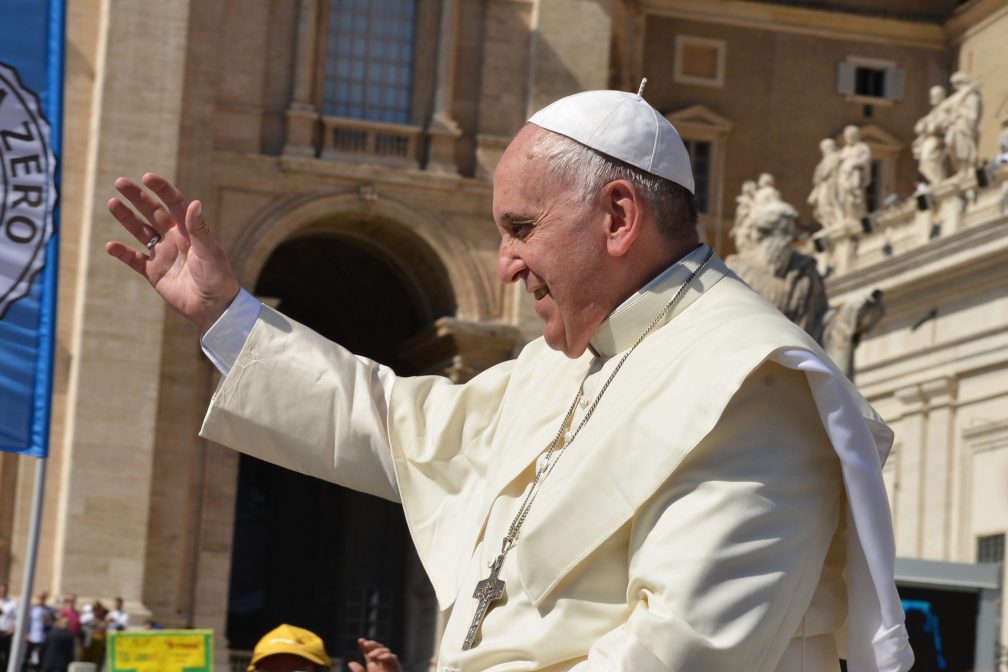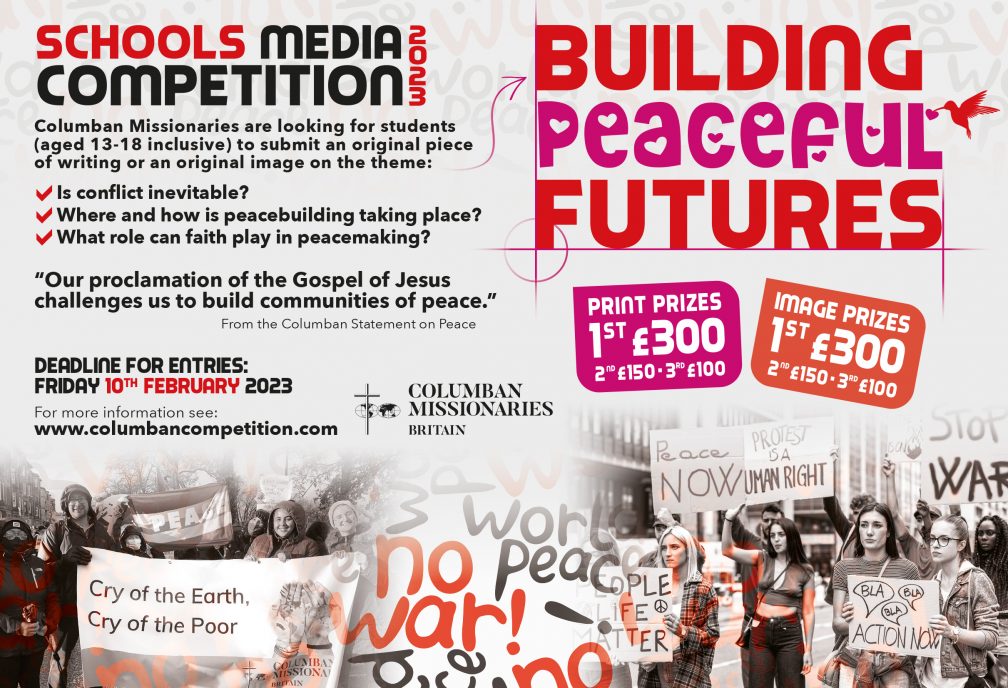In his 2023 World Peace Day message, Pope Francis has called on Catholics the world over to work together and with others to build peace. This resonates well with Columbans, who said at our General Assembly a decade ago: ‘As missionary disciples of Jesus, we are called to heal, reconcile, build bridges, and create mutual understanding through prophetic dialogue. Our commitment to interculturality, inter-faith dialogue, and solidarity with marginalised people and the exploited Earth are ways we participate in God’s mission, calling us forward into communion with our triune God. Our proclamation of the Gospel of Jesus challenges us to build communities of peace.’ (2012)
Pope Francis urges reflection on what lessons can be learned three years after the start of the COVID-19 pandemic. “What new paths should we follow to cast off the shackles of our old habits, to be better prepared, to dare new things? What signs of life and hope can we see, to help us move forward and try to make our world a better place?” He feels, “the greatest lesson we learned from COVID-19 is the realisation that we all need one another.” He calls for, “embarking together on paths of Peace”.
The World Day of Peace, instituted by St. Paul VI in 1968, is celebrated each year on 1st January. The 2023 message is titled, “No one can be saved alone: Combating COVID-19 together, embarking together on paths of peace.” In the UK, Pax Christi England and Wales organises resources for Peace Sunday on 15th January on behalf of the bishops. A sample homily and bidding prayers are among the resources sent to every parish.
Pope Francis highlights that “the widespread problems of inequality, injustice, poverty, and marginalisation continue to fuel unrest and conflict, and generate violence and even wars.” He feels, “we cannot continue to focus simply on preserving ourselves; rather, the time has come for all of us to endeavour to heal our society and our planet, to lay the foundations for a more just and peaceful world.”
Pope Francis describes the ongoing war in Ukraine as “a setback for the whole of humanity.” Just as the COVID-19 pandemic seemed to be diminishing, “we witnessed the onslaught of another scourge, another war” and he reflects that, “this is not the post-COVID era we had hoped for or expected.” The pope also noted that, “while a vaccine has been found for COVID-19, suitable solutions have not yet been found for the war.” And indeed, the Ukraine war is escalating to increasingly dangerous levels, with nuclear powers on either side.
The Pope’s text was presented on 16th December by Cardinal Michael Czerny, the Canadian cardinal who serves as prefect of the Vatican Dicastery for Promoting Integral Human Development.
The previous week, Cardinal Czerny celebrated the closing Mass of an international conference in Rome titled ‘Pope Francis, Nonviolence and the Fullness of Pacem in Terris.’ The celebration concluded with a recitation of the ‘Vow of Nonviolence’ in many languages.
Sponsored by Pax Christi International’s Catholic Nonviolence Initiative and the Justice, Peace, and Integrity of Creation Commission of Religious Superiors, the conference drew together Church leaders and local change makers from nearly 30 countries in Africa, Asia-Pacific, Europe, the Americas, and the Middle East. They reflected on Pope Francis’ work for nonviolent change, their experience of nonviolent initiatives and explored future steps in advancing the spirituality, way of life, strategies, and universal ethic of nonviolence in the Church and the world.
Irish Columban Pat Cunningham has fed into the process from his peacework in South Korea, where he regularly protests militarisation. Columbans have a history and tradition of living and ministering in countries where the violence of racism and war, military dictatorships, economic and environmental injustice is prevalent. “This experience motivates us to work with others to change attitudes, actions and structures that are opposed to peace, justice and racial harmony,” says the Columban Peace Statement.
Presenters at the Rome conference included Kenyan Sr Wamuyu Wachira, co-president of Pax Christi International, who reflected on those on the peripheries, popular movements, youth and Indigenous peoples being the agents of social change. Maudilia Lopez, an Indigenous woman from Guatemala, spoke about resisting destructive practices of the Canadian mining company, Goldcorp, and about the violence of the Church in forbidding traditional practices and dress central to the life of her Indigenous community. Sr Nathalie Becquart, undersecretary of the Synod of Bishops, contributed to a conversation about synodality as an expression of nonviolence.
So, in 2023, it is up to all of us to build peace as best we can in our families, workplaces, nationally and internationally.
On the Columban front, our 2023 Schools Competition is ‘Building Peaceful Futures’.
Students (aged 13-18 inclusive) are invited to submit an original piece of writing or an original image and the deadline for entries Friday 10 February 2023.
And for 2023, Columbans will be organising Columban groups to attend the annual Ash Wednesday vigil outside the Ministry of Defence in Whitehall, repenting “the moral blindness of our nuclear intentions.” Also, to attend a protest in September 2023 at the 12-15 September international Arms Fair at the ExCel Exhibition Centre in East London. The event takes place every two years and on one of the days Christian peace activists will gather at the site to pray and protest the arms fair.
For Peace Sunday on 15th January 2023 a Liturgy Booklet has been produced by Pax Christi England and Wales, with the support of the International Affairs Department Catholic Bishops’ Conference of England and Wales. We urge every parish to join Pax Christi and to mark this day and World Peace Day on 1 January.


